Counterparty
In Braid’s ecosystem, a Counterparty represents the external entity (payee or payer) involved in a transaction. A counterparty can be an individual or business entity.
API Details
Key Concepts for Counterparties
- Counterparty Profile: A Counterparty includes main details like name, email, phone, and three potential payment methods: ACH, Wire, and Braid Account. Only one payment method is required for the counterparty to be used in a transaction.
- Levels of Association: Counterparties can be created with three levels of association and may be reused across multiple transactions if permissions allow.
- Account Level: A counterparty tied to a specific account can only transact with that account.
- Customer Level: A counterparty associated with a specific business or individual is private to that customer and accessible only within that entity.
- Product Level: A counterparty at the product level is accessible across all users, suitable for commonly shared entities like billers or IRS payments.
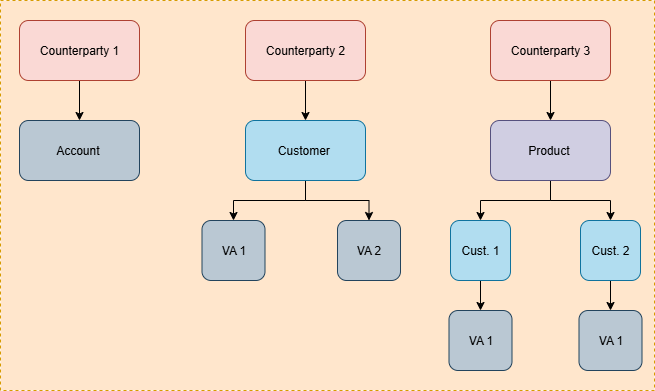
Fig 1. Counterparty - Level of Association
- Payment Methods:
A counterparty can be set up with one of the following payment methods:
- ACH: For transactions using the ACH network.
- Wire: For wire transfer transactions.
- FedNow: For FedNow transactions.
At least one of these payment methods must be provided for the counterparty to be transactable.
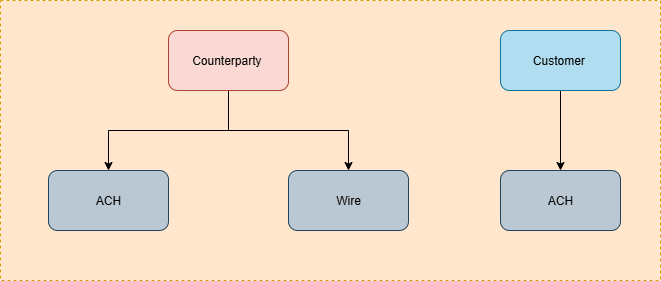
Fig 2. - Payment Instruments
Wire Payment Scenarios
Scenario 1: Domestic Wire Transfer
Use Case: U.S. customer sending USD to another U.S. bank.
For a Domestic Wire Transfer Receiver Bank will be considered the beneficiary bank.
Important API Fields: beneficiaryAccountNumber and receiverRoutingNumber.
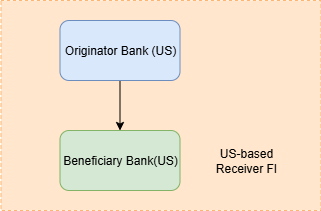
Fig 3. Funds Flow - Domestic Wire
Scenario 2: International Wire with No Intermediary Bank
Use Case: U.S. sender wiring funds to a UK beneficiary where the Receiver FI (US) has direct correspondence with the beneficiary bank (UK).
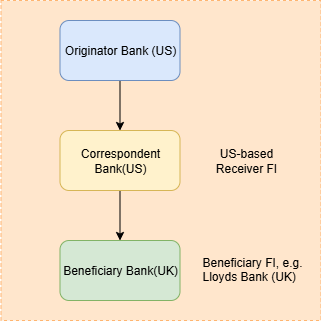
Fig 4. Funds Flow - International Wire
Scenario 3: International Wire with Intermediary Bank Use Case: U.S. sender wires funds to a UK bank, but requires a Canadian intermediary bank in between.
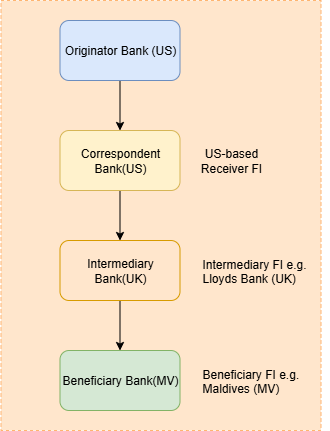
Fig 5. Funds Flow - International Wire with Intermediary
Updated 5 months ago
Once you add a Counterparty you can proceed to create a transaction
